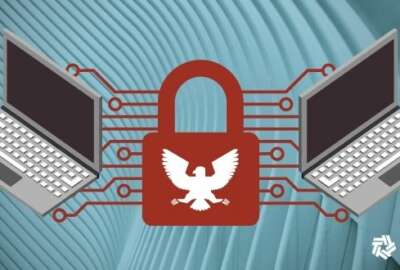Social Security plans to expand workforce diversity, equity, inclusion and accessibility
Also in today's Federal Newscast, a commission to help agencies prevent and manage wildfires has its official members. And the Army kicked off a huge recompete of...
To listen to the Federal Newscast on your phone or mobile device, subscribe in PodcastOne or Apple Podcasts. The best listening experience on desktop can be found using Chrome, Firefox or Safari.
- The Social Security Administration is set to expand diversity, equity, inclusion and accessibility in its workforce. In an effort to boost internal workforce equity, the agency will evaluate its mySSA Career Paths program to make opportunities more accessible to underserved communities. That includes assessing the language used in the program and increasing awareness of transit subsidy options. SSA’s plan comes just over a year after the White House issued an executive order focused on improving DEIA in the federal workforce.
- A commission to help agencies prevent and manage wildfires has its official members. The Wildland Fire Mitigation and Management Commission named 11 federal members. They’re tasked with recommending ways agencies can help alleviate the growing wildfire season. The new commission will be co-chaired by the Agriculture and Interior departments, along with FEMA. The agencies selected the new members out of more than 500 applicants. The commission was established under the Bipartisan Infrastructure Law and will have its first in-person meeting this August.
- Agencies spent more than $29 billion through the SmartPay government purchase card program at the General Services Administration last year. New data from GSA said the average purchase was $419 across the 69 million transactions and among the 6 million accounts. The Department of Veterans Affairs was the biggest user of the SmartPay program, spending about 44% of all dollars. The governmentwide total of $29 billion was the same as in 2020 and down from an all-time high of $33 billion in 2019.
- The Army kicked off a huge recompete of a technology contract. The Army’s Common Hardware Systems 6th Generation (CHS-6) contract includes a ceiling of almost $8 billion over the next 10 years. The Army’s Contracting Command plans to release the solicitation for CHS-6 in August. Through this single award, indefinite delivery, indefinite quantity type of contract, the Army seeks rapid procurement of command, control, communications, computers, cyber, intelligence, surveillance and reconnaissance capabilities. The technology should be commercial off-the-shelf technology and the vendors will have to provide non-personal services and continuous upgrades. General Dynamics won the fifth version of this contract in 2018. CH-5 has almost a $4 billion ceiling.
- The Army is thinking about how it can integrate its medical resources with the joint force. Army Futures Command released its Army Medical Modernization Strategy, which will prepare the Army Health System for the work of 2028 and beyond. The strategy calls for an increase in the ability to deliver agile emergency medicine and maintain well-equipped hospitals.
- The Department of the Navy is giving some safe harbor to service members who report sexual assault. In the past, sailors and Marines may have been reticent to report sexual assault because they were in situations that may have gotten them punished. The Navy is now trying to change that. In a new policy, service members who report sexual assaults will be exempt from collateral misconduct. That means they will not be charged for violations like underage drinking at the time of the assault, unprofessional relationships or curfew violations. The Navy said collateral misconduct is a significant barrier to service members reporting assaults.
- Secret Service Director James Murray is retiring on July 30, after 27 years with the agency. He’s been the director since May 2019 and started his time in federal service in 1990 as an investigator with the Transportation Department. There have been no announcements as to who will fill the position, either permanently or temporarily.
- Staffing shortages at the Department of Veterans Affairs are back on the rise after years of progress. The VA inspector general finds all 139 Veterans Health Administration facilities it surveyed this year reported at least one severe occupational staffing shortage. In total, the IG found more than 2,600 severe staffing shortages for 285 occupations across VHA nationwide. The agency saw year-over-year reductions in staffing shortages in 2019, 2020 and 2021. This marks the first year that VHA hasn’t continued to decrease the number of occupations with staffing shortages. (Federal News Network)
- In an effort to increase diversity and minority service members, the Coast Guard Academy is welcoming the largest number of women in 2022. This year’s incoming class has 293 students, 43% of whom are women and 38% from minority groups. There are also nine international cadets. The Coast Guard shattered a glass ceiling in the military last month when Adm. Linda Fagan became the first woman to lead a branch of the armed forces.
- The Justice Department’s cyber supply chain efforts are under the microscope. DOJ’s program for rooting out risky products in its technology supply chain is hampered by a lack of personnel and funding. That’s according to a new report from Justice’s Inspector General. The IG Found most DOJ components weren’t complying with the cyber supply chain risk management requirements. The report also found FBI procurement officials often improperly bypassed their own supply chain program. DOJ and FBI officials agreed with the IG’s recommendations to improve oversight and coordination on IT supply chain efforts.
- Agencies have until July 22 to patch a new vulnerability in Microsoft Windows. The Cybersecurity and Infrastructure Security Agency put the bug on its Catalog of Known Exploited Vulnerabilities. CISA said agencies need to carefully follow guidance for patching the bug, as the changes can break certificate authentication. That’s due to how Personal Identity Verification and Common Access Card certificates are created and used. More information on the vulnerability is posted to CISA’s website.
- The General Services Administration is looking to reduce single-use plastics through its contracts. GSA expects to propose a rule that would limit single-use plastics for the packaging and shipping of products it buys. But first the agency seeks feedback from industry about what prevents them from selecting paper-based and biodegradable packaging. This action falls under the Biden administration’s executive order seeking to reach net zero-emissions across the federal government by 2050. The Interior Department meanwhile is planning to eliminate single-use plastic products at national parks by 2032.
Copyright © 2025 Federal News Network. All rights reserved. This website is not intended for users located within the European Economic Area.
Peter Musurlian
Peter Musurlian is a producer at Federal News Network.
Follow @PMusurlianWFED
Related Stories
Time to reel in the growing number of supply chain risk management initiatives?
Related Topics
All News
Cybersecurity and Infrastructure Security Agency
Department of the Navy
diversity equity inclusion and accessibility
Federal Drive
Federal Newscast
firefighting
General Services Administration
James Murray
Justice Department
Management
military sexual assault
Secret Service
sexual assault
SmartPay
Social Security
supply chain risk management
Tom Temin
Workforce






